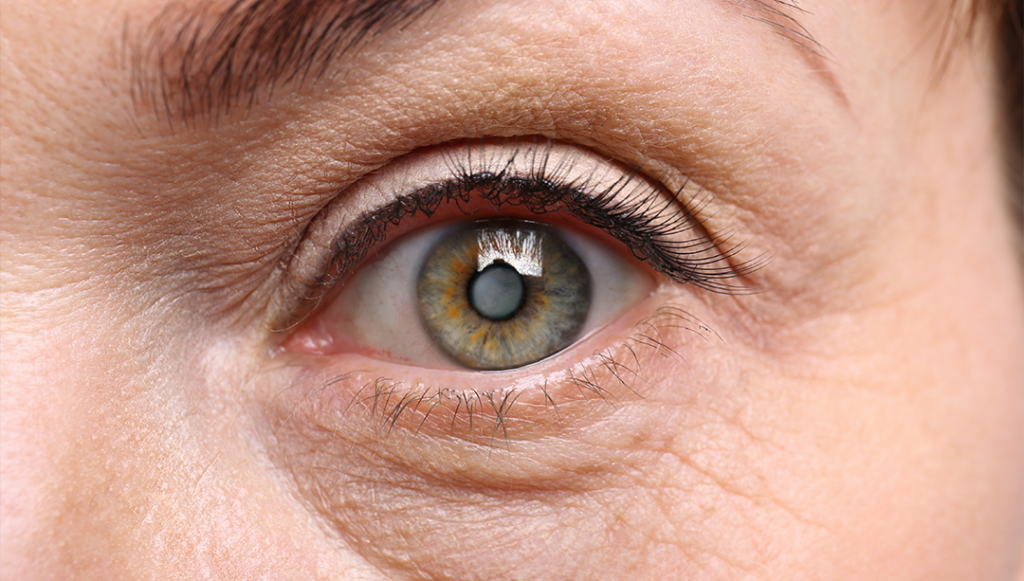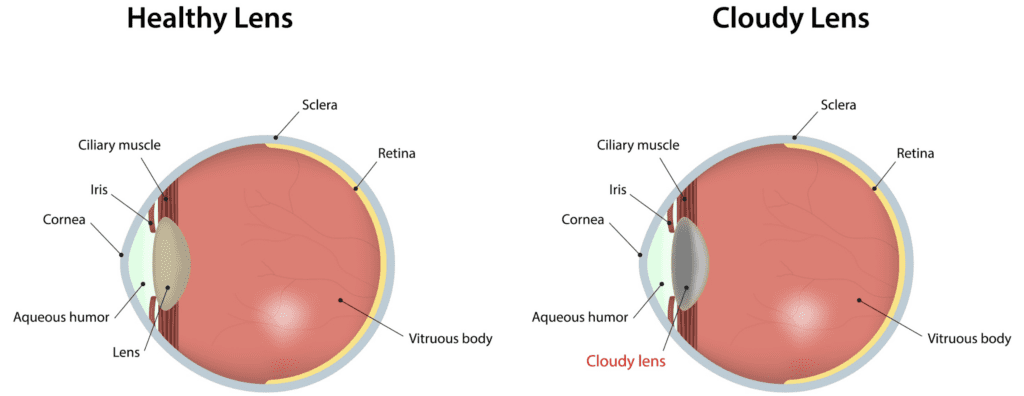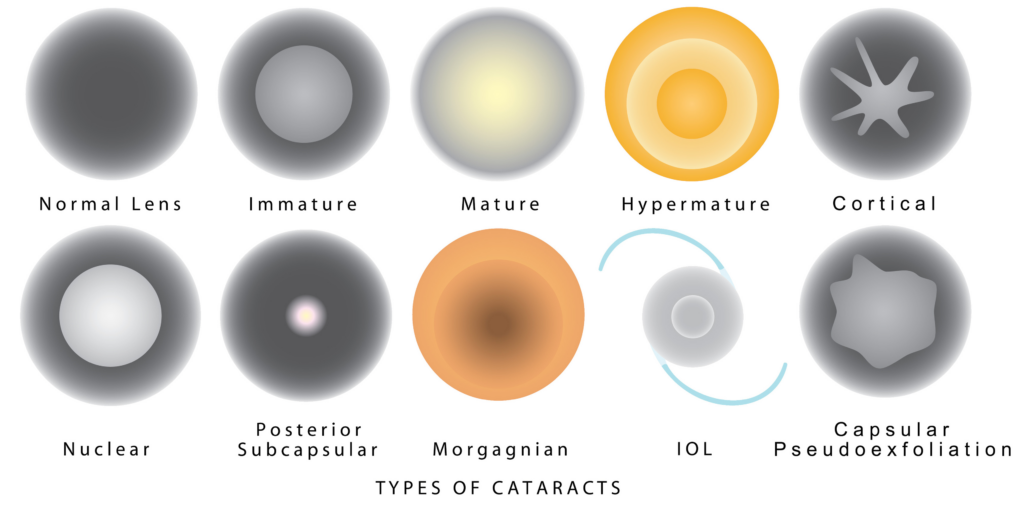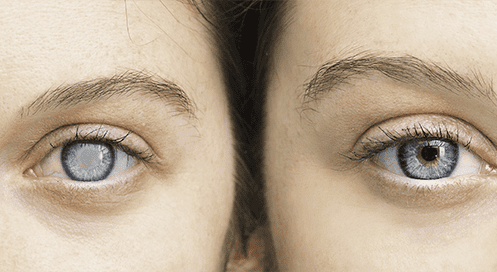How quickly a cataract develops does vary based on the individual. In fact, cataract development speed can even vary between the eyes in the same person. Because most age-related cataracts typically develop over a span of years, it’s a relatively slow process. However, some types of cataracts may develop faster, such as in individuals with diabetes, where cataracts can develop rapidly.
Early Cataract Stages
At first, most patients begin to notice the early signs, such as:
- Slightly blurred vision
- Faded colors
- Deteriorating night vision
- Halos appear around light sources
- Increased glare
- Double vision
Small cataracts tend to develop slowly. Some may never grow large enough to cause vision trouble. A cataract in its early stages is easily rectified with new eyeglasses, better lighting, even anti-glare lenses. However, in many cases, as cataracts grow larger they begin to cause significant changes in vision. This decreased vision is common, and because of that, cataracts must be diagnosed and treated promptly to avoid permanent vision loss.


Advanced Cataract Stages
A cataract in its advanced stages quickly interferes with everyday life. It is likely this problem has reached its advanced stage once double vision (a frequent symptom) and a clouded lens is more noticeable.
When the lens becomes cloudy, it is known as “mature.” It’s advisable for people to seek medical care before cataracts reach this stage. Today’s advances in eye care allow ophthalmologists to operate on a cataract early. Treatment for many patients involves surgically replacing the clouded lens with an artificial one. The process is relatively simple and painless for most.

Cataract Progression Factors
The pace at which cataracts grow varies depending on the individual and factors such as:
- Environmental impact
- Diabetes
- Medications
- Underlying eye conditions

Do You Have a Cataract?
See how we treat cataracts. If you think you have a cataract, you should talk to a doctor right away. There are many treatment options available to help you see clearly again. Talk to a board-certified, cataract doctor at YES today by calling (954) 452-9922.
